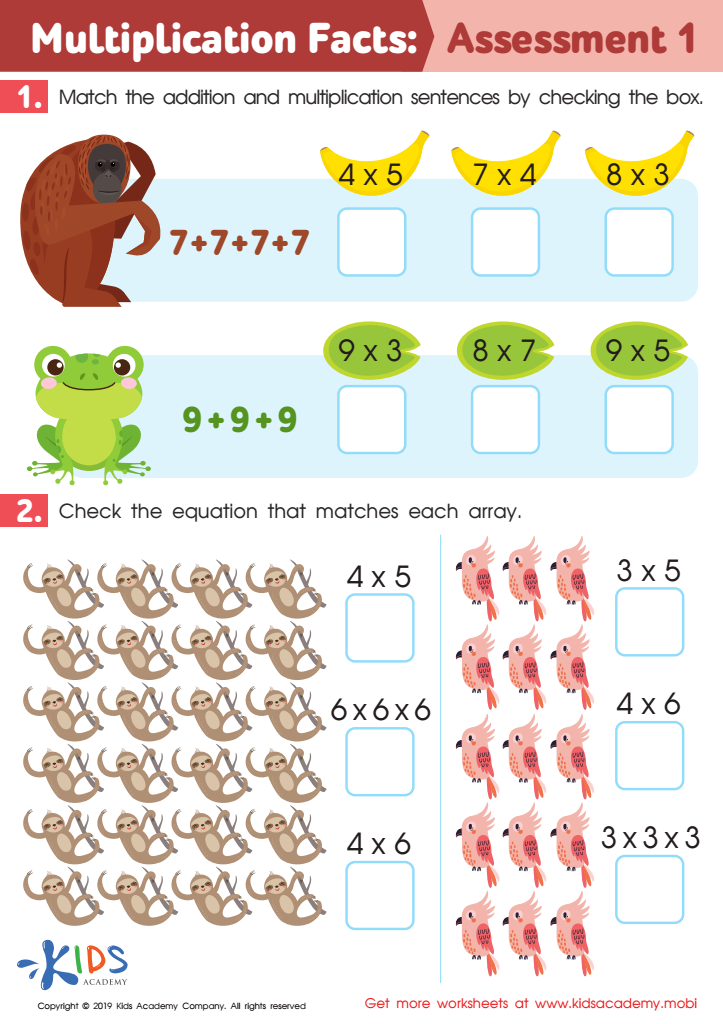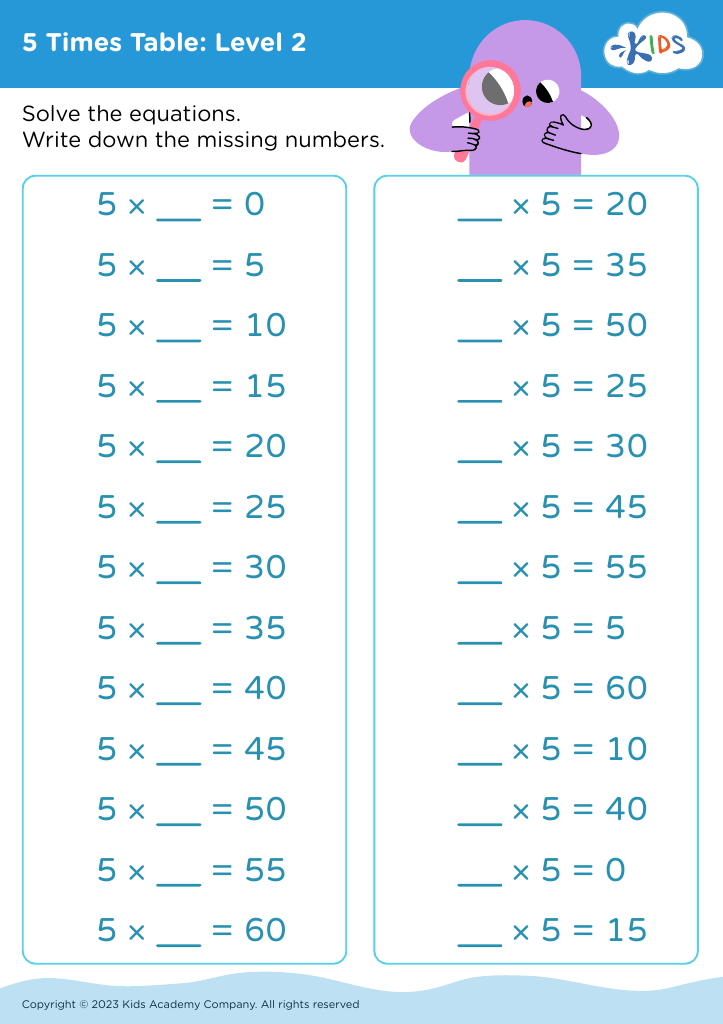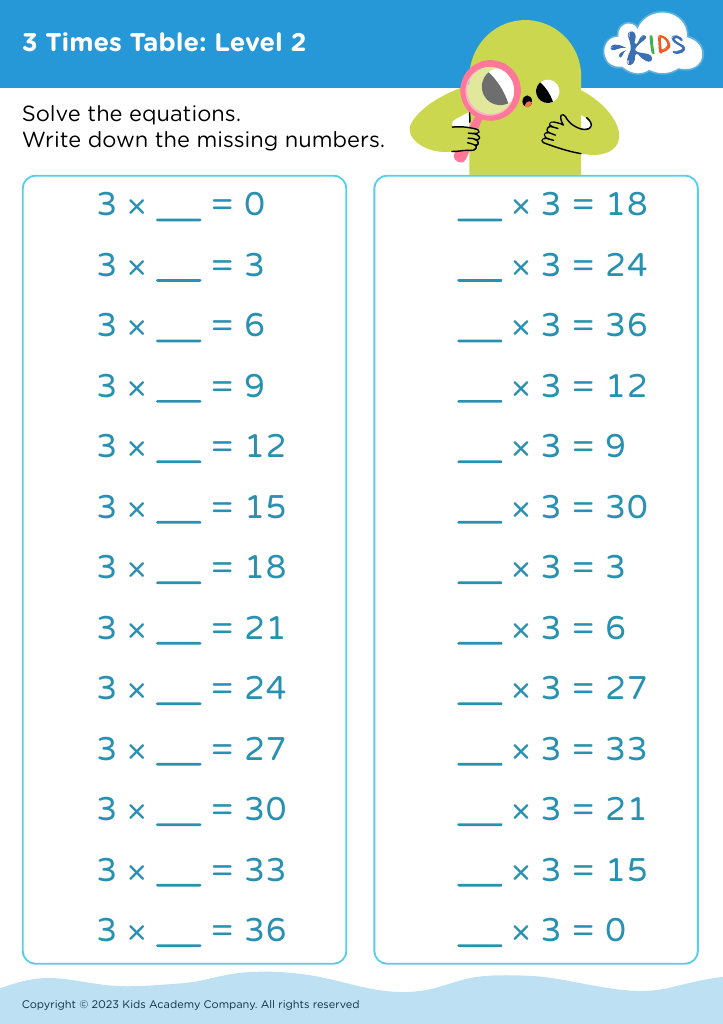Mental arithmetic skills Normal Multiplication Worksheets for Ages 7-8
3 filtered results
-
From - To
Unlock the potential of your child's mathematical abilities with our Mental Arithmetic Skills Normal Multiplication Worksheets, designed specifically for ages 7-8. These engaging and beautifully illustrated worksheets focus on enhancing your child's multiplication proficiency. With a gradual progression of difficulty, each worksheet helps young learners to confidently master multiplication facts. These activities not only reinforce basic math concepts but also boost mental arithmetic skills, critical thinking, and problem-solving abilities. Perfect for both classroom and at-home practice, our worksheets provide a fun and effective way to enhance your child's multiplication knowledge and overall numerical competency.


Multiplication Facts: Assessment 1 Worksheet
Mental arithmetic skills and the ability to perform normal multiplication are essential for children aged 7-8 for several significant reasons. First, developing these skills at an early age helps to build a strong mathematical foundation, crucial for understanding more complex concepts later on. Mental arithmetic sharpens a child's ability to perform calculations quickly and efficiently, boosting their confidence in handling numbers.
Additionally, these skills enhance cognitive development. Mental arithmetic requires memory, concentration, and logical thinking. By practicing these regularly, children exercise their brain, improving their overall problem-solving and critical-thinking abilities. These skills are not confined to math alone but extend to other academic subjects and daily life scenarios.
Moreover, proficiency in multiplication is vital since it is a fundamental operation utilized in various aspects of mathematics, including division, fractions, and algebra. As children encounter real-world problems, such as understanding time, money, or even cooking measurements, the ability to multiply mentally offers a practical tool for general life competence.
Finally, achieving mastery in mental arithmetic and multiplication can foster a love for math, reducing math-related anxiety. When children recognize their capabilities in math, their self-esteem grows, leading to a positive attitude toward learning. Therefore, ensuring children develop these essential skills can significantly impact their academic success and everyday life.
 Assign to My Students
Assign to My Students






















